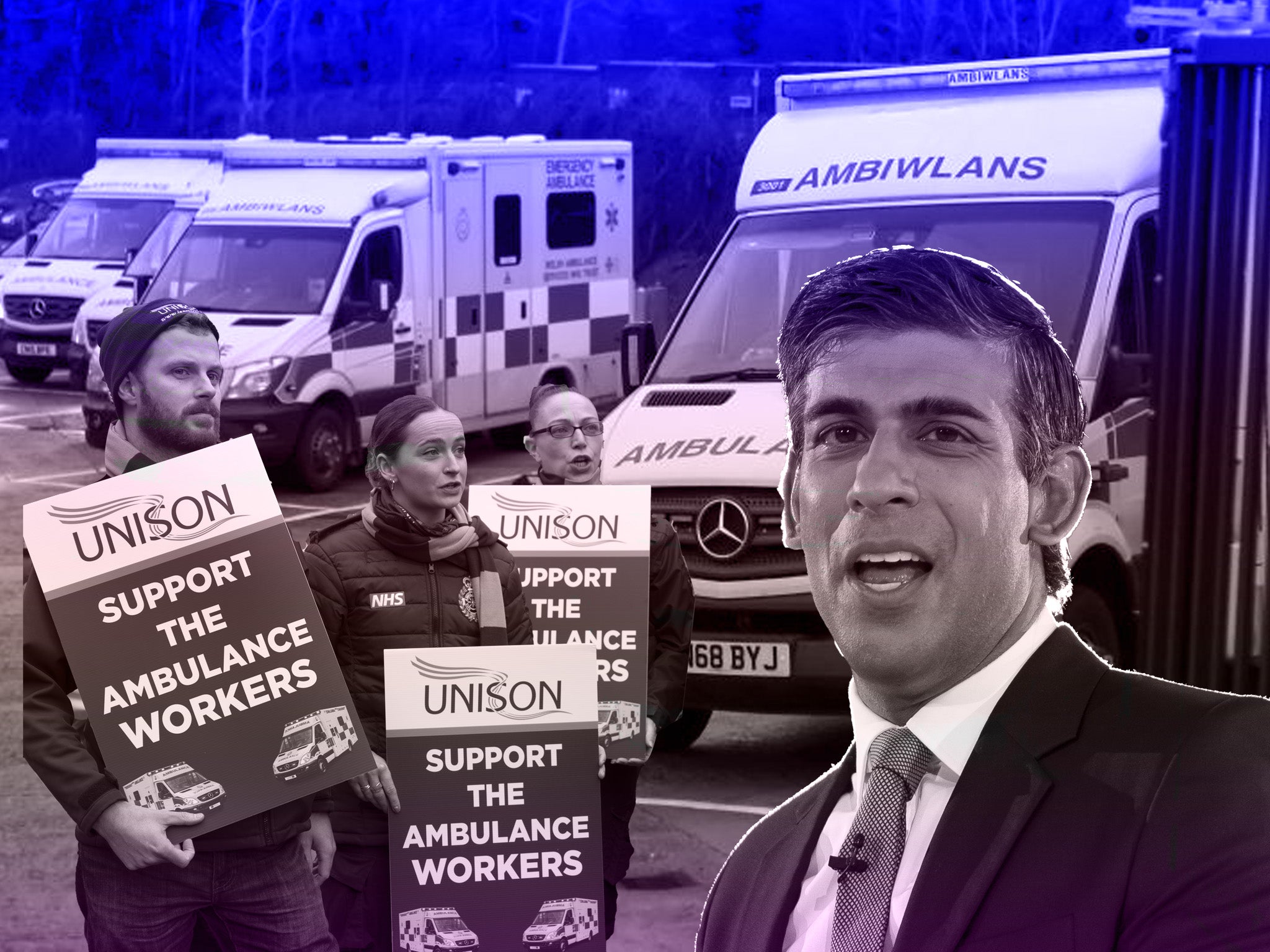What does Britain really think about the strikes?
As unions and government continue their stand-off, voters are still backing the workers who have chosen to walk out, polling finds – and they support more strikes in the new year, Adam Forrest reports


Your support helps us to tell the story
From reproductive rights to climate change to Big Tech, The Independent is on the ground when the story is developing. Whether it's investigating the financials of Elon Musk's pro-Trump PAC or producing our latest documentary, 'The A Word', which shines a light on the American women fighting for reproductive rights, we know how important it is to parse out the facts from the messaging.
At such a critical moment in US history, we need reporters on the ground. Your donation allows us to keep sending journalists to speak to both sides of the story.
The Independent is trusted by Americans across the entire political spectrum. And unlike many other quality news outlets, we choose not to lock Americans out of our reporting and analysis with paywalls. We believe quality journalism should be available to everyone, paid for by those who can afford it.
Your support makes all the difference.Rishi Sunak has been warned that his “high risk” strategy on public sector pay rises could backfire, as an exclusive poll for The Independent showed strong public support for fresh strikes in 2023.
Almost two in three voters would back NHS nurses taking more strike action next year if their pay demands are not met, the Savanta poll found, with only 24 per cent opposed. In addition, more voters expressed support for fresh industrial action by rail staff, bus drivers, postal workers and teachers than those who said they were opposed to further strikes.
Some 65 per cent of those polled said they thought Mr Sunak’s government had handled the wave of winter strikes badly, while only 27 per cent thought the crisis had been managed well.
‘On the side of the workers’
Chris Hopkins, the director of Savanta, said Mr Sunak would find the polling numbers “concerning” given that public opinion is largely sympathetic to workers threatening to strike again in 2023.
“It’s clear that the public are on the side of workers,” said Mr Hopkins. “While that doesn’t necessarily mean that the public think trade unions are blameless, they do believe the government is equally, if not more, to blame for [there having been] so many public sector walkouts.”
Government handling
Mr Hopkins said that the government was banking on further disruption “having an attritional effect” on support for the strikes, adding: “It feels something of a risky strategy given the high levels of public support at the moment.”
Backing for the NHS in the blue wall
A group session in the safe Tory “blue wall” seat of Swindon North – convened by More in Common for The Independent – revealed overwhelming sympathy for the nurses, ambulance drivers and paramedics who are taking part in industrial action.
Most members of the focus group said ministers should be willing to negotiate with health union leaders, and several blamed the government’s refusal to engage in pay talks for the strikes.
Video: Every industrial walkout set for January so far
Bel, a 33-year-old administration worker, said: “The government is to blame. The government need to dig deeper to find the money. If they can fund their Christmas parties, why can’t they give healthcare professionals a bit more money?”
She added: “I have friends in the NHS and they’re just exhausted. They get paid peanuts and work around the clock. So they definitely deserve more money.”
Claire, a 47-year-old paralegal, said NHS workers had been under “such pressure” for a long time. “I think they do need more money, and if striking is the only way to do it, then I understand why they do it,” she said.
While some expressed doubt on the question of whether the 19 per cent (5 per cent above inflation) pay rise sought by nursing union leaders is affordable, the blue-wall voters agreed on the need to offer more than the 4 to 5 per cent increase currently on the table.
Matthew, a 39-year-old surveyor, said there was “bound to be a compromise somewhere in the middle that would be acceptable by all parties”.
Jade, 36, a stay-at-home mother, said: “I hope a deal can be done. You have to put [the 19 per cent pay rise demand] into context – they’re on really low wages for what they do. I think they deserve it.”
Luke Tryl, the UK director of More in Common, said sympathy for NHS staff had remained firm in focus groups across the country over recent weeks. “There has been a strong sense that the government has got to be more reasonable. People think the government does have the power to sort out strikes.”
Affected by strikes
He added: “There is a high level of sympathy with nurses and NHS staff. Some people do feel 19 per cent is possibly a bit much, but most people think nurses are underpaid and are entitled to a significant pay rise.”
Division over transport disruption
The voters in Swindon North were less sympathetic to those taking part in the rail strikes over Christmas. There was a sense of resignation due to the frequency of the disruption on the railways over recent months.
The Savanta poll for The Independent found division in the attitude to transport disruption. Some 43 per cent of voters supported the idea of the rail workers taking further strike action in 2023 if their pay demands are not met, while 36 per cent were opposed.
The poll indicates some sympathy with Jeremy Hunt’s argument that tackling inflation should take priority over public sector pay rises. The chancellor has claimed that restraint is needed in case an increase in wages “locks in” higher inflation.
Pay rises versus inflation
While 38 per cent of voters said public sector pay rises are more important than tackling inflation, 49 per cent said bringing down inflation should be the priority.
The Savanta survey of 2,065 people was conducted between 16 and 18 December.




Join our commenting forum
Join thought-provoking conversations, follow other Independent readers and see their replies
Comments